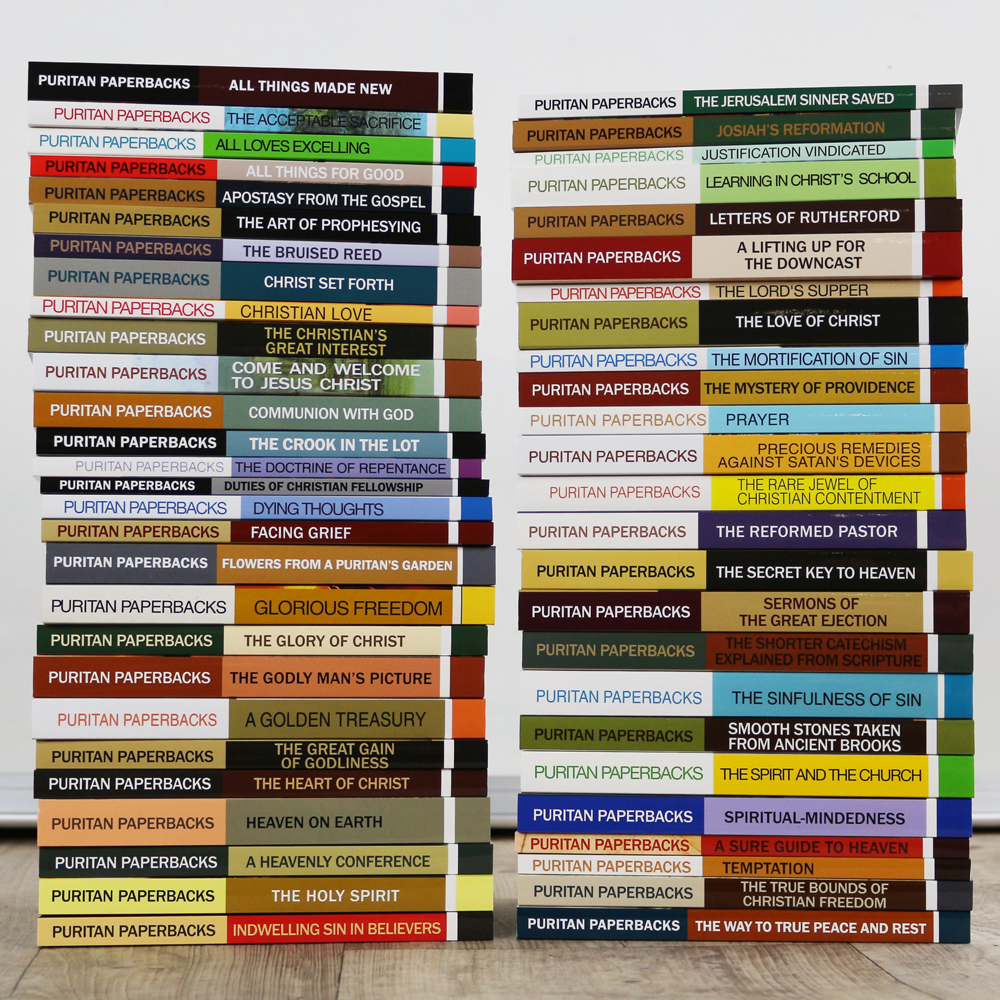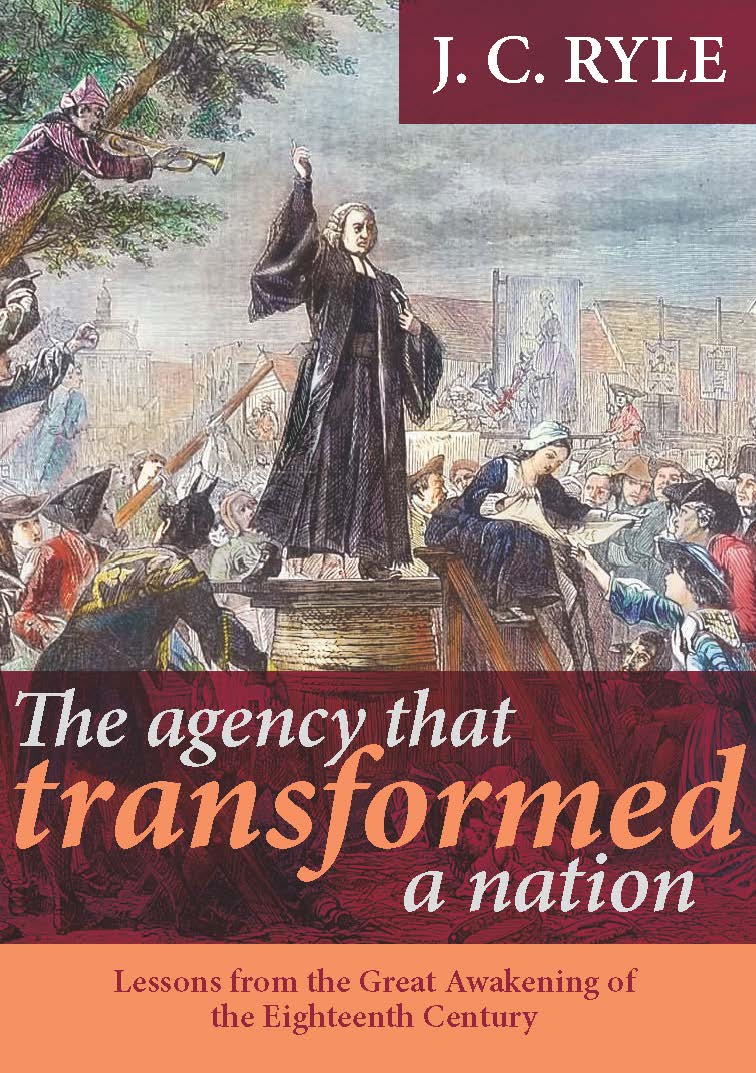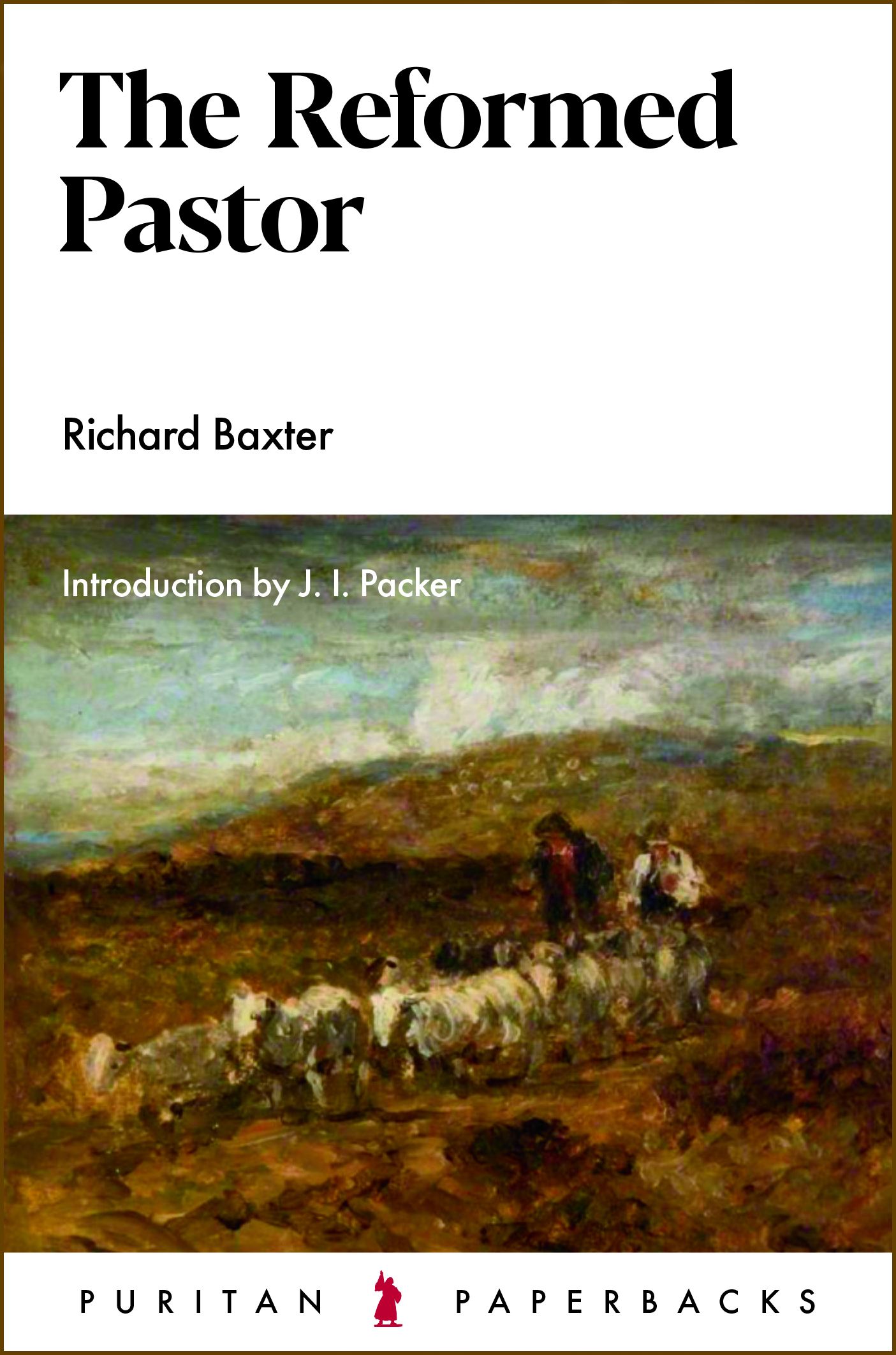The Reformed Pastor
| Weight | 0.33 kg |
|---|---|
| Dimensions | 18.1 × 12.1 × 1.8 cm |
| ISBN | 9781848712119 |
| Binding | Paperback, Bonded Leather, eBook (ePub & Kindle), Paperback & eBook (ePub & Kindle) |
| format | Book |
| page-count | 256 |
| series | Puritan Paperbacks |
| topic | Pastoral Theology/Pastoral Helps |
| Original Pub Date | 1656 |
| Banner Pub Date | Jul 1, 1974 |
| This Edition | 2020 |
Endorsements
‘…A staple classic…you absolutely must have it. The passion, the love, for the souls of your people; this is the type of book you want to read once a year.’ — JOEL BEEKE
Book Description
Richard Baxter was vicar of Kidderminster from 1647 to 1661. In an introduction to this reprint, Dr. J.I. Packer describes him as ‘the most outstanding pastor, evangelist and writer on practical and devotional themes that Puritanism produced’. His ministry transformed the people of Kidderminster from ‘an ignorant, rude and revelling people’ to a godly, worshipping community. These pages, first prepared for a Worcestershire association of ministers in 1656, deal with the means by which such changes are ever to be accomplished. In his fervent plea for the discharge of the spiritual obligations of the ministry, Baxter, in the words of his contemporary, Thomas Manton, ‘came nearer the apostolic writings than any man in the age’. A century later Philip Doddridge wrote, ‘The Reformed Pastor is a most extraordinary book…many good men are but shadows of what (by the blessing of God) they might be, if the maxims and measures laid down in that incomparable Treatise were strenuously pursued’.
Today, Baxter’s principles, drawn from Scripture, and reapplied in terms of modern circumstances, will provide both ministers and other Christians with challenge, direction and help.
Table of Contents Expand ↓
| Introduction: James I. Packer | 9 | |
| Preface: William Brown | 23 | |
| Dedication | 37 | |
| Introductory note | 51 | |
| 1. | CHAPTER I | |
| The oversight of ourselves | 53 | |
| Section 1 | ||
| The nature of this oversight | 53 | |
| 1. See that the work of grace be thoroughly wrought in your own souls | 53 | |
| 2. See that you be not only in a state of grace, but that your graces are in vigorous and lively exercise | 61 | |
| 3. See that your example contradict not your doctrine | 63 | |
| 4. See that you live not in those sins against which you preach in others | 67 | |
| 5. See that you want not the qualifications necessary for the work | 68 | |
| Section 2 | ||
| The motives to this oversight | ||
| 1. You have a heaven to win or lose as well as other men | 72 | |
| 2. You have a depraved nature as well as others | 73 | |
| 3. You are exposed to greater temptations than others | 74 | |
| 4. You have many eyes upon you, and there will be many to observe your falls | 75 | |
| 5. Your sins will have more heinous aggravations than other men’s | 76 | |
| 6. Such great works as yours require greater grace than other men’s | 77 | |
| 7. The honour of Christ lieth more on you than on other men | 78 | |
| 8. The success of your labours materially depends on your taking heed to yourselves | 80 | |
| 2. | CHAPTER II | |
| The oversight of the flock | ||
| Section 1 | ||
| The nature of this oversight | 87 | |
| THIS OVERSIGHT EXTENDS TO ALL THE FLOCK | ||
| 1. We must labour for the conversion of the unconverted | 94 | |
| 2. We must give advice to inquirers who are under conviction of sin | 96 | |
| 3. We must study to build up those who are already partakers of divine grace | 97 | |
| 4. We must exercise a careful oversight of families | 100 | |
| 5. We must be diligent in visiting the sick | 102 | |
| 6. We must be faithful in reproving and admonishing offenders | 104 | |
| 7. We must be careful in exercising Church discipline | 104 | |
| Section 2 | ||
| The manner of this oversight | 111 | |
| THE MINISTERIAL WORK MUST BE CARRIED ON | ||
| 1. Purely for God, and the salvation of souls | 111 | |
| 2. Diligently and laboriously | 112 | |
| 3. Prudently and orderly | 112 | |
| 4. Insisting chiefly on the greatest and most necessary things | 113 | |
| 5. With plainness and simplicity | 115 | |
| 6. With humility | 116 | |
| 7. With a mixture of severity and mildness | 117 | |
| 8. With seriousness, earnestness and Zeal | 117 | |
| 9. With tender love to our people | 117 | |
| 10. With patience | 119 | |
| 11. With reverence | 119 | |
| 12. With spirituality | 120 | |
| 13. With earnest desires and expectations of success | 121 | |
| 14. Under a deep sense of our own insufficiency, and of our dependence on Christ | 122 | |
| 15. In unity with other ministers | 123 | |
| Section 3 | ||
| The motives to this oversight | 124 | |
| 1. From the relation in which we stand to the flock – we are overseers | 124 | |
| 2. From the efficient cause of this relation – The Holy Ghost | 129 | |
| 3. From the dignity of the object which is committed to our charge – The Church of God | 130 | |
| 4. From the price paid Joy the Church – which he hath purchased with his blood | 131 | |
| 3. | CHAPTER III | |
| Application | 133 | |
| Section 1 | ||
| The use of humiliation | 133 | |
| 1. On account of our pride | 137 | |
| 2. Our not seriously, unreservedly, and laboriously laying out ourselves in our work | 146 | |
| (1) By negligent studies | 146 | |
| (2) By dull, drowsy preaching | 147 | |
| (3) By not compassionating and helping destitute congregations | 150 | |
| 3. Our prevailing regard to our worldly interests, in opposition to the interests of Christ | 150 | |
| (1) By temporizing | 150 | |
| (2) By too much minding worldly things | 151 | |
| (3) By barrenness in works of charity | 152 | |
| 4. Our undervaluing the unity and peace of the Church | 156 | |
| 5. Our negligence in exercising Church discipline | 163 | |
| Section 2 | ||
| The duty of personal catechizing and instructing the flock particularly recommended | 172 | |
| PART I: MOTIVES TO THIS DUTY | 173 | |
| ARTICLE 1 | ||
| Motives from the benefits of the work | 173 | |
| 1. It will be a most hopeful mean of the conversion of sinners | 174 | |
| 2. It will essentially promote the edification of saints | 176 | |
| 3. It will make our public preaching better understood by our people | 177 | |
| 4. It will make us more familiar with them, and assist us in winning their affections | 177 | |
| 5. It will make us better acquainted with their spiritual state, and enable us better to watch over them | 178 | |
| 6. It will assist us in the admission of persons to the sacraments | 178 | |
| 7. It will show men the true nature of the ministerial office | 178 | |
| 8. It will show our people the nature of their duty to their ministers | 180 | |
| 9. It will give the governors of the nation more correct views of the Christian ministry, and so may procure from them further help | 182 | |
| 10. It will exceedingly facilitate the ministerial work in succeeding generations | 185 | |
| 11. It will conduce to the better ordering of families, and the better spending of the Lord’s day | 186 | |
| 12. It will help to preserve many ministers from idleness and mis-spending their time | 186 | |
| 13. It will contribute to subdue our own corruptions, and to exercise our own graces | 187 | |
| 14. It will withdraw both ourselves and our people from vain controversies, and the lesser matters of religion | 187 | |
| 15. It will extend these various benefits to all the people in our several parishes | 188 | |
| 16. It will not even stop here, but is like to be a work that will reach over the whole land | 188 | |
| 17. The weight and excellence of the duty recommended | 189 | |
| ARTICLE 2 | ||
| Motives from the difficulties of the work | 192 | |
| 1. Difficulties in ourselves | 192 | |
| 2. Difficulties in our people | 193 | |
| ARTICLE 3 | ||
| Motives from the necessity of the work | 195 | |
| 1. It is necessary for the glory of God | 195 | |
| 2. It is necessary for the welfare of our people | 197 | |
| 3. It is necessary for our own welfare | 199 | |
| ARTICLE 4 | ||
| Application of these motives | 200 | |
| PART II: OBJECTIONS TO THIS DUTY | 212 | |
| PART III: DIRECTIONS FOR THIS DUTY | 231 | |
| ARTICLE 1 | ||
| Directions for bringing our people to submit to the exercise | 232 | |
| 1. Conduct yourselves in the general course of your life and ministry, so as to convince them of your ability, sincerity, and love to them | 232 | |
| 2. Convince them of the benefit and necessity of this exercise | 233 | |
| 3. Put catechisms into the hands of every family in your congregation, whether rich or poor | 235 | |
| 4. Deal gently with them, and avoid every kind of discouragement | 236 | |
| 5. Expostulate with such as are obstinate and disobedient | 237 | |
| ARTICLE 2 | ||
| Directions for prosecuting the exercise with success | 237 | |
| 1. Address a few words to them in general to mollify their minds, and to remove all offence | 238 | |
| 2. Take them one by one, and deal with each of them apart | 239 | |
| 3. Take an account of what each of them has learned of the catechism | 240 | |
| 4. Try by further questions how far they understand what they have learned | 240 | |
| 5. When you have tried their knowledge, proceed next to instruct them yourselves | 244 | |
| 6. If they appear to be unconverted, make some prudent inquiry into their state | 245 | |
| 7. Endeavour to impress their heart with a sense of their deplorable condition | 248 | |
| 8. Conclude with an exhortation to them to believe in Christ, and to the diligent use of the external means of grace | 250 | |
| 9. At dismissing them, mollify their minds by a few words deprecating anything like offence, and endeavour to engage the masters of families to carry on the work you have begun | 252 | |
| 10. Keep a list of your people in a book, with notes of their character and necessities | 253 | |
| 11. Through the whole course of the exercise, see that the manner as well as the matter be suited to the end | 254 | |
| 12. If God enable you, extend your charity to those of the poorer sort, before they part from you | 256 |
You may also like…

Puritan Paperbacks Series
Number of volumes depends on availability
Description
The great classic on the work of the Christian ministry. 256pp.
More items to consider:

Calvin’s Wisdom
An Anthology Arranged Alphabetically
Description
The great classic on the work of the Christian ministry. 256pp.

The Agency that Transformed a Nation
Lessons from the Great Awakening of the 18th Century
Description
The great classic on the work of the Christian ministry. 256pp.



Bob –
Richard Baxter’s, “The Reformed Pastor” published by, “The Banner of Truth” is just as relevant today as it was in 1651. It is a timeless classic of Christian writing and should be in every Pastor’s library and read by every Christian. This book was written to address problems Baxter saw with his contemporaries. He was going to address them with a speech, but fell ill. Instead, he wrote to them, the words recorded in this book. Some Pastors were unbelievers, some were, cold intellectuals with great educations, others were passionate, but not qualified to serve as Pastors, yet still others were just as crass and base as the carnal world they wallowed in. Baxter took them all to task, and not just them, but himself also.
Don’t be mistaken. This book is not a polemic, but a call to repent and be a loyal and true servant of God. The work is broken down into three chapters. Chapter one, “The oversight of ourselves” starts as a check up or a self-diagnostic per se. Baxter effectively brings to light the necessity of a Pastor being truly regenerated. Then, he warns Pastors about pitfalls of bad practices, as well encourages them. Chapter two, “The oversight of the flock” is just that. Instruction on how to perform the vocation dutifully for the Lord’s service and man’s benefit. If it weren’t full enough of good applicable information, then comes chapter three, “Application.” This Chapter is the largest of the book, and encompasess the most direclty applicable information for Pastors. The book in its entirety, convicts, informs, and exhorts.
Some of you might be concerned that this book will be difficult to read due to it being in Modern English. (like the King James) I want to assure you that it was not a difficult read. Baxter put much emphasis on being comprehensible. He encourage the Pastors of the time to employ language and nomenclature that the common man would readily understand. With that in mind, Baxter wrote. This book, at times might slow you down, but not excessively or without easy remedy.
One of the points that grabbed my attention and seemed anachronistic was his preaching against Pastors using their positions as a means to easy and comfortable lives. It brought to mind many of the Television Pastors living in sixteen thousand square foot palatial homes, while owning fleets of private jets. I guess bilking the hurting and needy in the name of God has been around for a long time. That is why it, “seemed” anachronistic when it actually wasn’t.
There is so much in this book to like. I found myself underlining and highlighting entire sections. It is extremely relevant for today, just as I am sure it was for the time in which Baxter wrote. It reminds me of, “Crazy Love” by Francis Chan, but only for Pastors and from the perspective of a Pastor. That being said, there are theological notions that Baxter held that I do not affirm. He held to a sort of middle way when it came to soteriology. He wasn’t Arminian and he wasn’t Reformed. While I may not hold to Baxter’s theological convictions, I did thoroughly enjoy this book and will probably read it again and again over the years to come.
Gavin Delap –
The Reformed Pastor by Richard Baxter is the result of a Pastoral concern for the personal catechising of all ages, each individual within a congregation. As a result, we are blessed with an outstanding work, which is an exposition and application of Acts 20:28: “Be on guard for yourselves and for all the flock of which the Holy Spirit has appointed you as overseers, to shepherd the church of God, which He purchased with His own blood.” It was Baxter’s hope that his treatise would ‘reform’ – hence the title – the practice of catechising, which would result in more people getting saved, growing in faith and eventually a reformed understanding of doctrine.
His treatise begins, as it should, with an ‘oversight of ourselves.’ Baxter exhorts the Pastor to “take heed to yourself” and look inward at the state and motives of oneself, reflecting on his own failures throughout. To him there was no higher calling and no greater privilege than to
oversee God’s Church, though he acknowledges that this is no small task; yet still, one that can and should be exercised joyfully, by a man fit for the position, being under grace with a fruitful confession, who is well studied, and has an awareness of his own sin given the exposure to great temptations, for “the honour of your Lord and Master, and of His holy truth and ways, doth lie more on you than on other men.”
He then moves on to an ‘oversight of the flock.’ Baxter laboured under the belief that “a man’s soul is worth more than a world.” His focus isn’t so much on preaching or doctrinal distinctives, but ensuring everything is in place for spiritual growth, starting with a greater knowledge of the Gospel, namely by private instruction man by man; acknowledging the different needs of classes of people, from the unconverted up to the stronger Christian. This included, where necessary, a careful exercise of Church discipline, with an address of the manner to which all tasks must be carried out, and the purpose thereof.
Baxter’s exhortation is beyond persuasive, to the point where I would argue that if one isn’t convicted by the neglect of such duties and moved to action by the desperate needs of souls that shall never cease to exist, and stirred with a passion and energy that would sooner see themselves removed from the land of the living, rather than a soul under their keep not be found in the Lamb’s book of life, then consideration is necessary as to whether one is qualified for the privileged title and role of Pastor. This gracious rebuke and call to reform, which contains as much love and concern for the Pastor as it does for the flock, fulfils Baxter’s intention perfectly, and is as relevant today for Pastors, those aspiring to Ministry, and sheep alike, as it was when first published in 1656. Full of wisdom and practical application, this really is a book you should read once a year.